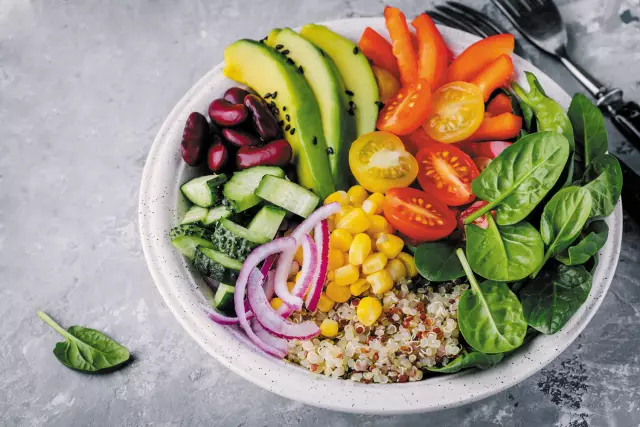- Author Rachel Wainwright [email protected].
- Public 2023-12-15 07:39.
- Last modified 2025-11-02 20:14.
6 healthy alternatives to coffee
Coffee is a tonic drink loved by many for its aroma and taste. With its stimulating effect, coffee increases performance, improves concentration, fights drowsiness and improves mood. According to statistics, about 30% of the world's inhabitants regularly drink coffee, of which more than 8% are coffee lovers - they consume more than 3 cups of drink a day.
However, the effects of coffee on the body are controversial. According to doctors, abuse of the drink leads to negative results: depletion of the nervous system, malfunctions of the heart, blood vessels, physical fatigue, and dehydration. Coffee is strictly prohibited for people suffering from vascular atherosclerosis, glaucoma, renal failure, hypertension and some other diseases. To reduce the stress on the cardiovascular system, doctors recommend switching to decaffeinated coffee or replacing it with drinks that are similar in properties, but do not have a detrimental effect on the body. Their use will prevent the psychological discomfort associated with the lack of the usual coffee breaks, and also enrich the body with useful substances. We bring to your attention the top of such drinks.
Chicory
The drink made from roasted chicory roots owes its popularity to the taste closest to coffee of all surrogates. During processing, chicory forms aromatic compounds similar in composition to caffeol, the substance that gives coffee its aroma. At the same time, chicory does not contain caffeine and does not cause hyperstimulation of the nervous and cardiovascular systems. And cheerfulness and energy after taking the drink arise due to the rich content of vitamins and nutrients in its composition.
Chicory can be safely included in the diet for iron deficiency anemia, pancreatitis (during remission), cholelithiasis, dysbiosis and even neurasthenia. Unlike coffee, chicory is recommended to be brewed with milk: then, according to doctors, it has a calming and restorative effect on the body.

Source: depositphotos.com
Cocoa
The advantage of cocoa as an alternative to coffee is that cocoa does contain caffeine (about 0.2%). This ensures not an abrupt, but a gradual, more gentle transition for the body from coffee to other drinks. The taste of cocoa is slightly similar to coffee, but softer, as well as the effect on the gastric mucosa. It is believed that cocoa, like coffee, stimulates the production of endorphins, which increase mood and give vigor, due to which the replacement is more loyal to the body. In addition, regular consumption of the drink will reduce the risk of diabetes mellitus, stomach ulcers, vascular and heart diseases.

Source: depositphotos.com
Barley coffee
Like traditional coffee, barley coffee is made from roasted beans, ground and brewed in a Turk. It is different in taste and aroma, but the main difference is the absence of caffeine. However, although barley coffee differs markedly from natural coffee, it - due to its high nutritional properties - also helps to "recharge".
Like barley grains, barley coffee is extremely beneficial for the body; it is used in the treatment of diseases of the kidneys, digestive system, and mammary glands. To make the transition from natural coffee to barley coffee psychologically more comfortable, you should combine the drink with chicory (0.5 tsp. Chicory per 1 tbsp. L. Ground barley).

Source: depositphotos.com
Matcha latte
Matcha (matcha) is a drink made from powdered tea leaves, the content of antioxidants and beneficial trace elements in which is ten times higher than in ordinary green tea. Due to the healing properties of Japanese matcha tea, it is able to prevent heart disease, metabolic disorders, tumor diseases, but the main feature of the drink as an alternative to coffee is its positive effect on mental processes. The amino acid L-theanine contained in tea leaves in a large amount gently enhances performance (both mental and physical), without oppressing, but relaxing the nervous system.
Adding frothed milk and sugar to taste will allow you to get a more satisfying and appetizing drink - matcha latte, which is not inferior to coffee either in taste or in tonic properties.

Source: depositphotos.com
Latte with ginger and turmeric
For a healthy latte 2 tsp. ground turmeric, 1 tsp. cinnamon and a piece of fresh ginger, approximately equal to 1 teaspoon by volume, are boiled in 400 ml of water until a dark orange color is obtained, after which whipped soy milk and sweetener (maple syrup, honey) are added. A hot drink with aromatic spices, like coffee, will invigorate and warm you on a cold day. It is believed that this latte is beneficial for the digestive tract and strengthens the immune system.

Source: depositphotos.com
Acorn coffee
Roasted acorn coffee is considered an effective treatment for many ailments. So, for diseases of the gastrointestinal tract, the drink is taken half a glass 3 times a day for a month, and for bronchitis, asthma, heart diseases, sugar and milk are added to it. The bitter, astringent taste of an acorn drink is close to that of coffee, so acorns are often used as a substitute for coffee beans. The effect of the drink is beneficial for poisoning, diseases of the genitourinary system, scrofula, rickets. Acorn coffee can also be given to children (in the appropriate dosage). It, unlike the traditional one, has a beneficial effect on the condition of the teeth, preventing bleeding of the gums and not creating a plaque on the enamel, and besides, it perfectly invigorates.

Source: depositphotos.com
YouTube video related to the article:

Maria Kulkes Medical journalist About the author
Education: First Moscow State Medical University named after I. M. Sechenov, specialty "General Medicine".
Found a mistake in the text? Select it and press Ctrl + Enter.






